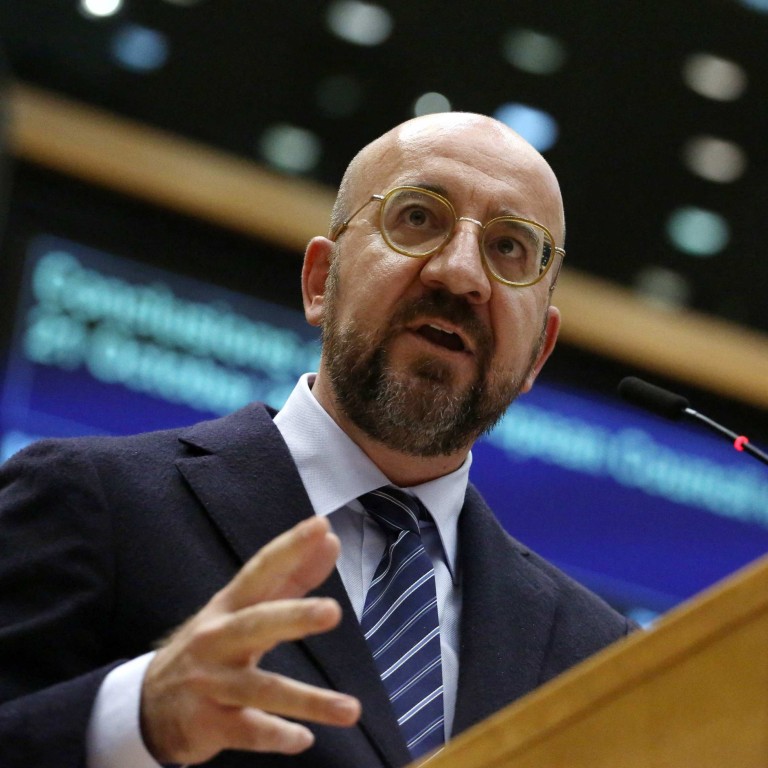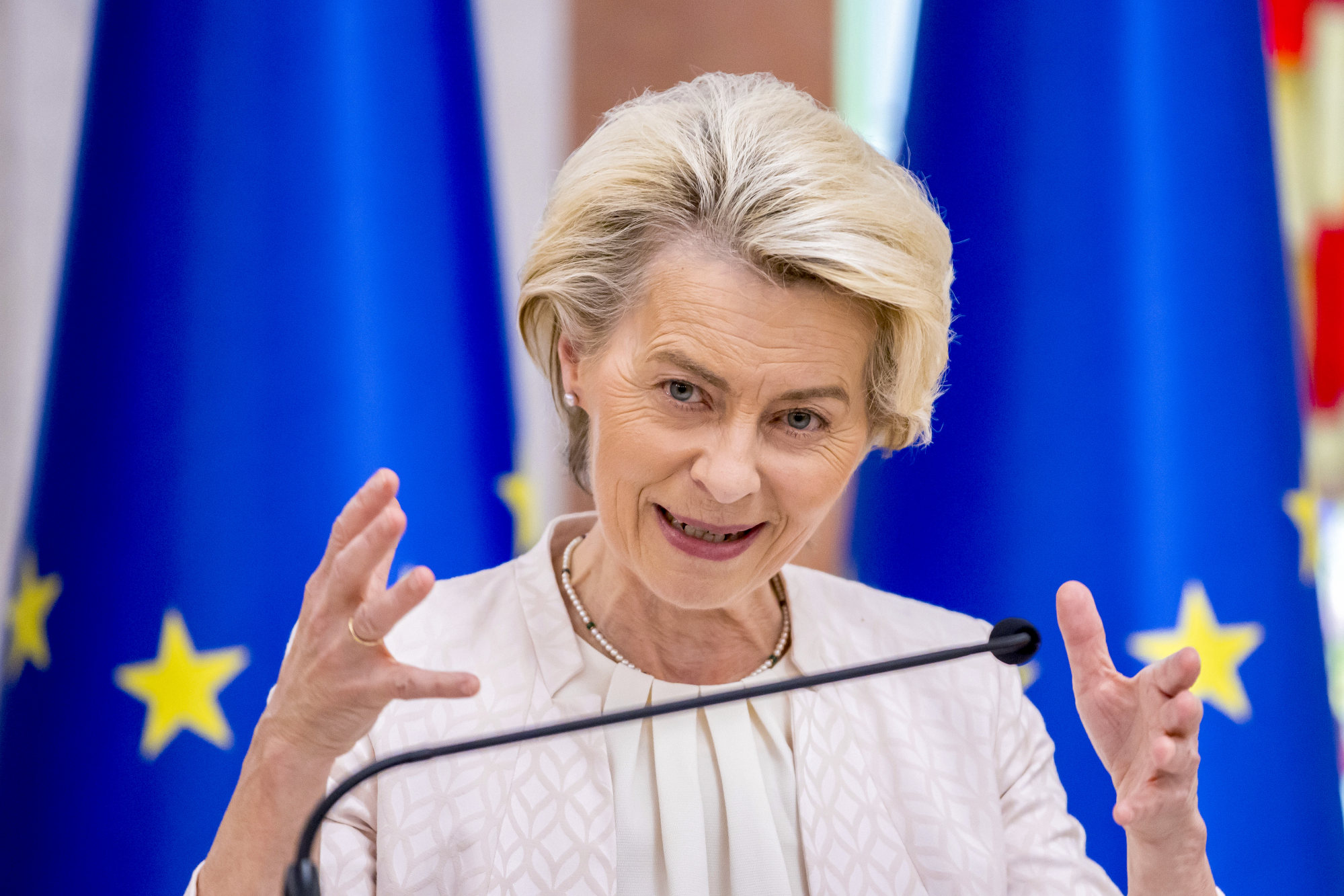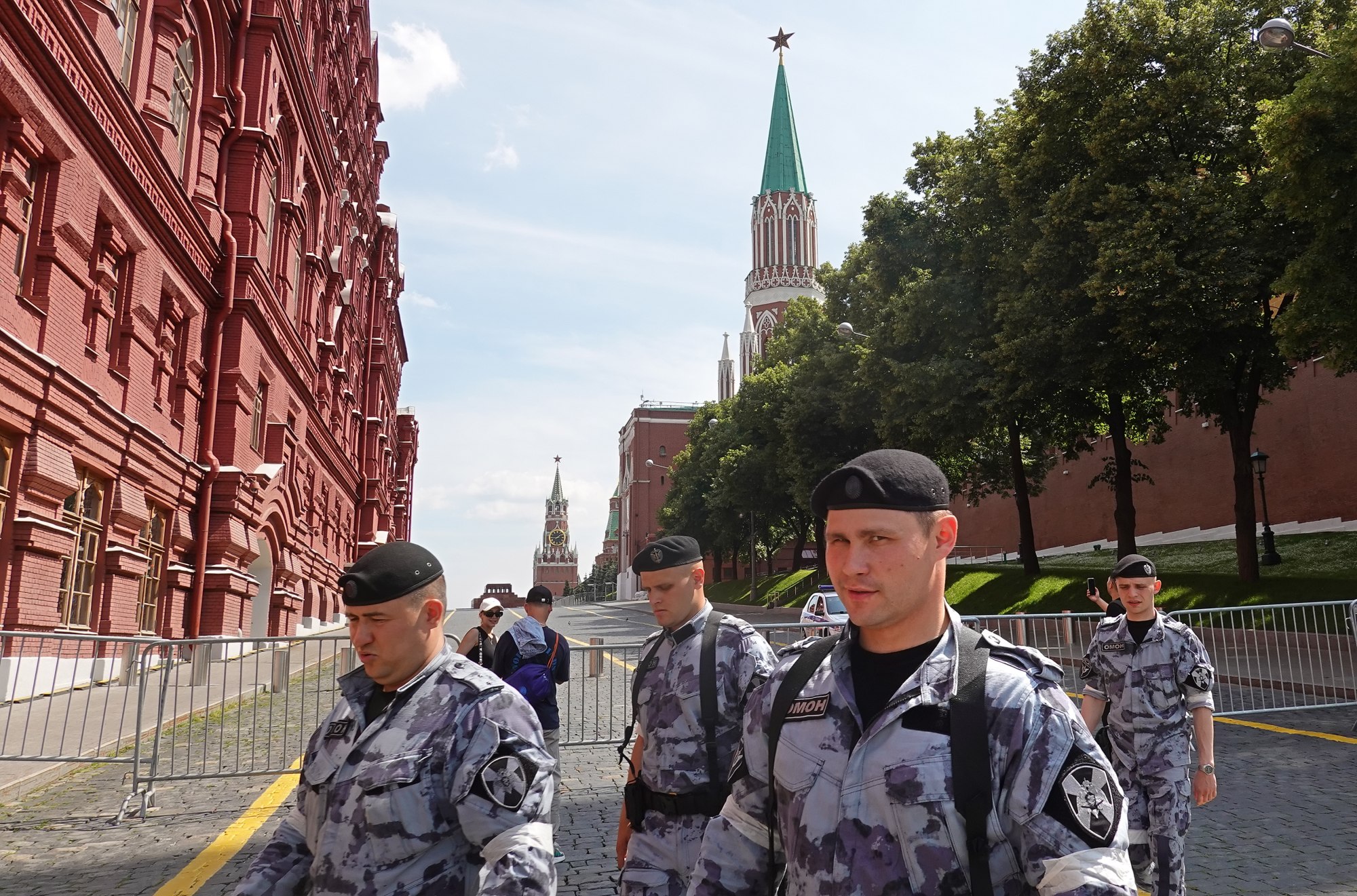
EU seeks to project united approach towards China ahead of high-level Brussels meetings
- Bloc aims to ‘de-risk and diversify’ for mutual economic benefit yet not ‘decouple or turn inwards’, according to leaked draft statement seen by Post
- But concerns within EU persist regarding China’s alliance with Russia amid Ukraine war as well as Beijing’s actions in Taiwan Strait and on human rights
Brussels is eager to project a united EU approach in its China policies despite some divergent positions among members, as the 27-nation bloc’s leaders gather in the Belgian capital for a two-day summit.
In a letter to EU leaders ahead of the high-level meetings, EU Council President Charles Michel said discussions on China – expected to be held on Friday – would give an opportunity to “reconfirm” the bloc’s “broad and united stance” towards the country.
European Union leaders were expected to assert that “engagements with China will continue on global challenges”, according to a leaked EU draft of conclusions seen by the Post.
The bloc would “de-risk and diversify where necessary and appropriate, in order to achieve a balanced, reciprocal and mutually beneficial economic relationship” with Beijing, the statement read.

“The European Union does not intend to decouple or to turn inwards,” it added. “Its policies are not designed to harm China nor to thwart China’s economic progress and development.”
However, divisions persist within the bloc over how to deal with China owing to each nation’s varying national interests concerning de-risking and national security, according to some senior EU diplomats.
While there is broad support for reducing Europe’s dependencies on China and finding alternative suppliers for critical goods, some have voiced concern that the European Commission is moving too quickly and too expansively.
Hungarian foreign minister takes aim at EU’s China ‘de-risking’ strategy
Earlier this month, Fu Cong, the Chinese envoy to the EU, stressed that “de-risking should not become decoupling in another name”.
Meanwhile, EU foreign policy chief Josep Borrell said de-risking was not without its own risks and that it was important for EU nations to debate the subject further.
But this effort had increased the bloc’s exposure to China, he said, which controls 80 to 90 per cent of the refining and end-products needed to transition to green energy practices.
“So, it is not always easy to say objectively where de-risking ends and decoupling begins,” Borrell said, adding that Europe needed “a real debate” on the matter. He added that although EU institutions could propose measures, “it is member states that decide”.
It’s ‘complicated’: EU de-risking push casts shadow over Chinese premier’s trip
“These differences in priorities at times lead to frictions,” he said.
China’s decision not to formally condemn Russia’s invasion of Ukraine has proved another sore point in its fraught relations with the EU.
“As Russia’s friendly neighbour and comprehensive strategic partner of coordination for the new era, China supports Russia in maintaining national stability and achieving development and prosperity,” the Chinese foreign ministry said in a statement after the Wagner revolt.

Macron, who was criticised for his comments during a trip to China in April when he said the EU should not be drawn into the Taiwan crisis, told CNN over the weekend that he was “dead against Chinese aggression on Taiwan”.
EU leaders are expected to state that the bloc “is concerned about growing tensions in the Taiwan Strait”, according to the draft statement.
“The European Council opposes any unilateral attempts to change the status quo by force or coercion. It reconfirms the EU’s consistent ‘one-China policy’,” it said.
European Union chief cautions Beijing against taking Taiwan
The letter urges the EU to pursue “a concerted, strategic approach to challenge Chinese government policies, practices and narratives that undermine human rights”.

